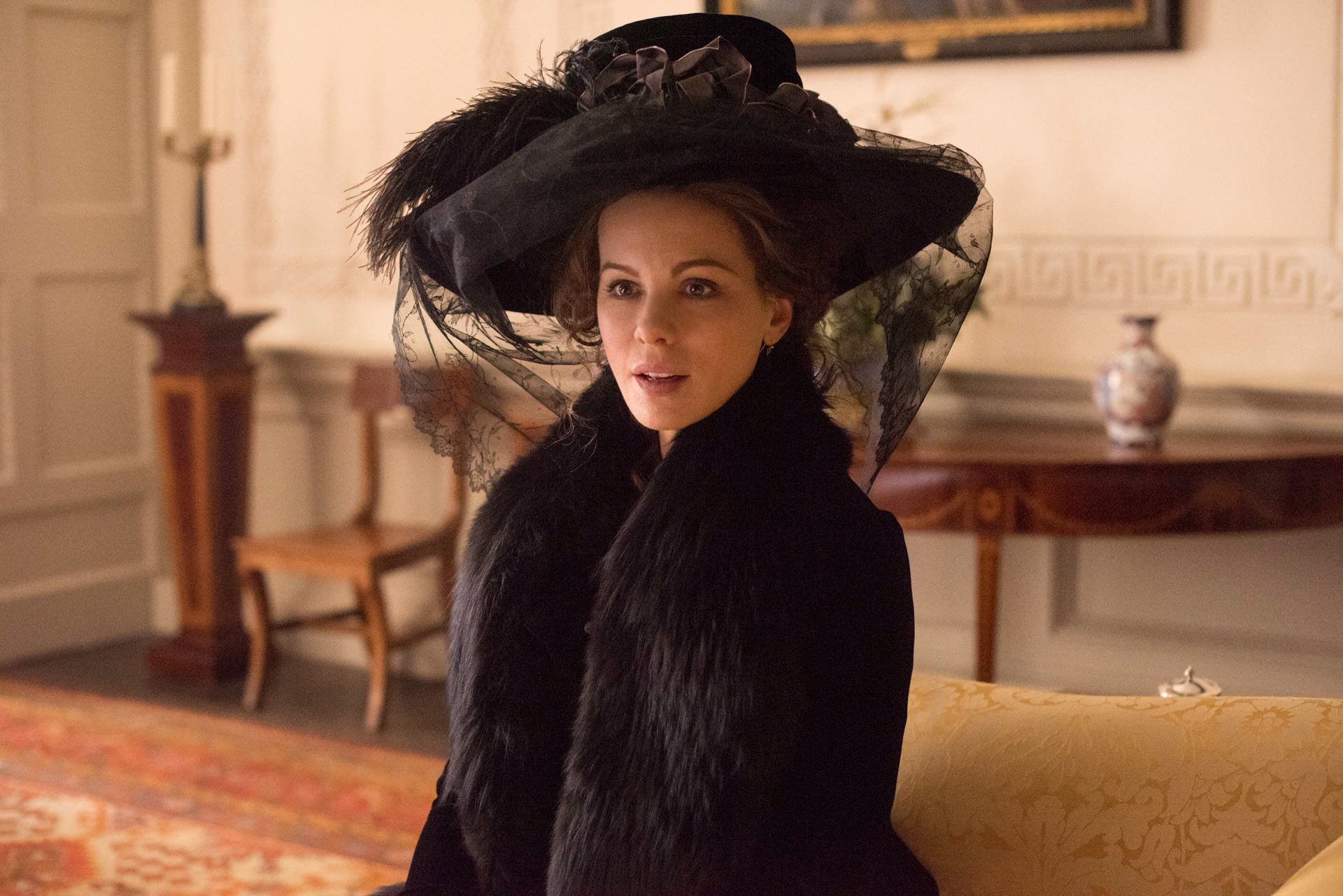The Stanford Daily continues the conversation with Kate Beckinsale, the star of Whit Stillman’s latest film, “Love & Friendship” (opening in Bay Area theatres tomorrow). Based upon Jane Austen’s little-known novella “Lady Susan,” “Love & Friendship” finds Beckinsale playing an aristocrat adroitly navigating the treacherous waters of English high society. In the second part of our interview, we discuss Austen’s lasting legacy in 2016, as well as the difficulties in playing the shrewd yet delightful Lady Susan.
The Stanford Daily (TSD): So what roles are you most comfortable doing? Which do you prefer?
Kate Beckinsale (KB): I’m very drawn to characters like Lady Susan. On paper, they’re written as difficult, diabolical, or tricky. Then, as an actor, you must make them very charming. And you have to find the balance between the two. I really liked that in this, in “Last Days of Disco,” in “Cold Comfort Farm” and “Emma.” It’s a really fine tightrope to walk. Whit seems to be the king of these types.
TSD: Well, Lady Susan could have become a sinister villainess to the point where we could turn against her, but amazingly that never happens. So what was your process as a performer bringing these qualities out?
KB: First off, you don’t want the character to have a sort of mustache-twiddling villainy. That wasn’t a problem, though, since Whit is so sensitive to nuance. If your sensibility and the director’s are similar, we won’t be going, “Oooh! Watch out! You’re coming off like too much of a bitch here.” In fact, all of his notes were always “Act a bit less, don’t have so much emotion here or there.”
It’s also very important to be aware of Lady Susan’s social situation. This character — intelligent, charismatic, healthy sexual appetite — would be doing just fine in 2016. She’d have an extremely high-powered job. She’d probably have a few lovers. She’d be making her own money and be fine. Trouble is, she has all of this and yet is still constrained by her society, where it’s nigh impossible to have this sort of within-the-system freedom unless you’ve secured yourself a good husband.
And yet, she has this sensibility, so how’s she going to go about that? Well, she’s basically somebody who wants her cake, eats it, and gets away with it. Given the circumstances of this period in women’s literature, “Lady Susan” looks very unusual and subversive. What’s typically supposed to happen, if a woman’s got multiple lovers, is that she’s supposed to get syphilis and die. Or maybe die in a fire. Something terrible must happen because it’s a morality tale. Even in “Mansfield Park”, the adulteress doesn’t do very well in the end. Here, though, Lady Susan gets every single thing she wants. And you do root for that a bit. It’s a fantastic spirit, even if you don’t really want her in your life as a spirit.
TSD: I’m quite curious, which of Whit’s works has been your favorite?
KB: Oh, I’m really biased. I’m going to say one of the ones that I was in, one that I have a personal attachment to. I really did love “Metropolitan.” I watched it before we made “Last Days of Disco”, and I remember being absolutely baffled and going, “Who are these people? These very exotic creatures?!” A real lightness-of-touch shows up in all of his movies where you, as an audience member, are going, “I’m the only one getting how funny this is.” Makes ya feel good about yourself, and Whit’s the master of that. He’s a true, eccentric person, in the most intellectual way. Well — not that he goes around carrying cats or something like that.
TSD: Jane Austen is almost a genre unto herself, and someone who’s transcended the period in which she originated. What do you attribute that to? What do you feel is the appeal of the Jane Austen genre?
KB: I think this is such a different vibe than what we typically associate with Jane Austen. We obviously know her from her social commentary, and the light character humor, and the brilliant romantic writing, and all that.
But I am always struck by how different this particular Austen story is in relation to all the others. At the screening that opened SFIFF on Thursday night, people were of course laughing (which is great), but they were also gasping in shock at her behavior. And I was thinking, “This is written in 1794. We’re in 2016. We’ve got internet porn. I mean, you can see people fucking animals, and you’re going ‘gasp!’ at Jane Austen wickedness?! This is great!” Not much has changed, really, in that sense.
TSD: Lady Susan’s so wicked. But we laugh because it comes from a place of recognition. I think a lot of us spend our lives suppressing that wicked side of ourselves, but she lets it flourish like a fountain.
KB: Right. Well, she’s 100% self-serving and self-justifying. And yet, she’s not insecure in the slightest. Something quite nice about playing and seeing a female who isn’t plagued by any sort of self-doubt whatsoever. Sure, you don’t want her in your family, but at the same time you’re thinking, “Go, you!”
Contact Carlos Valladares at [email protected].
